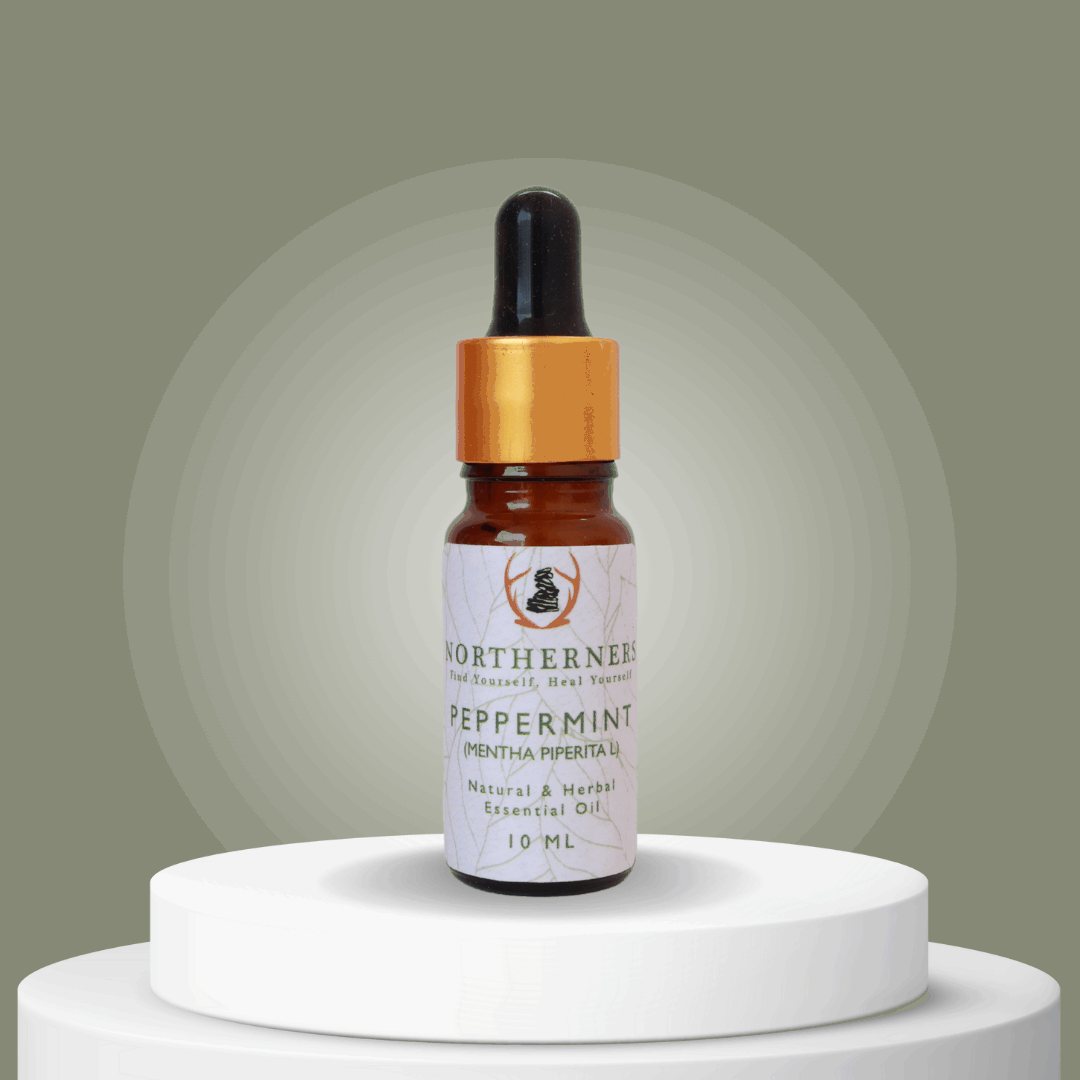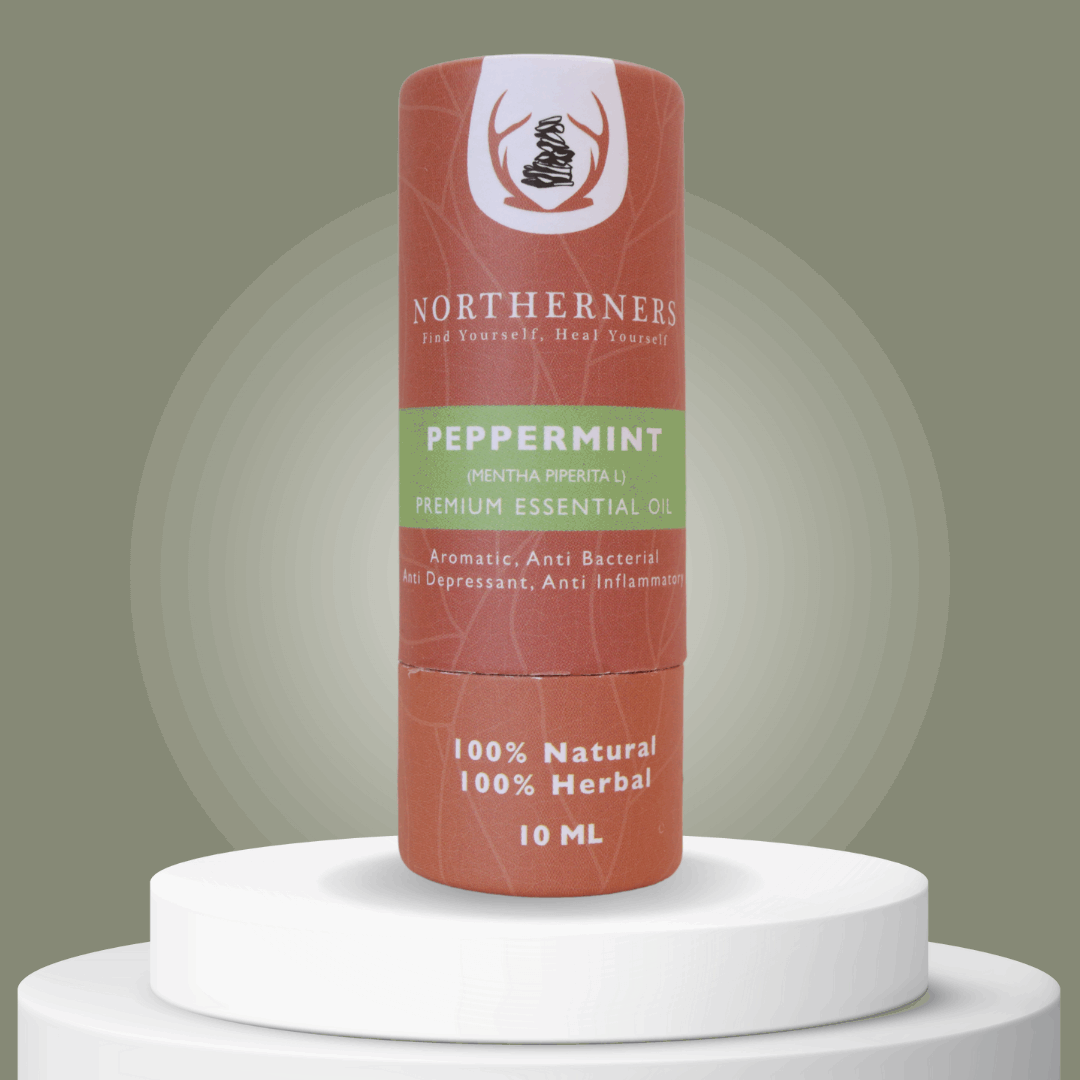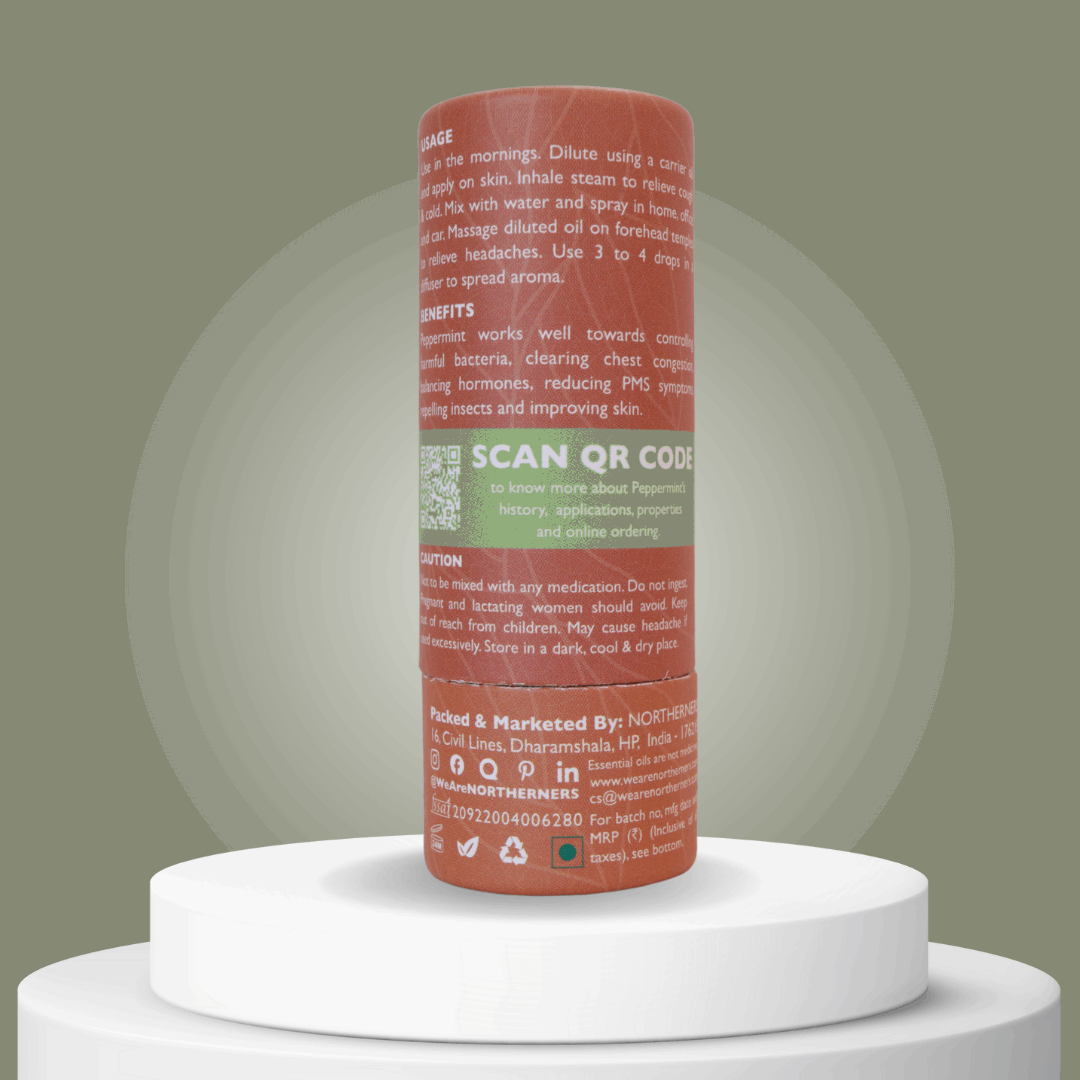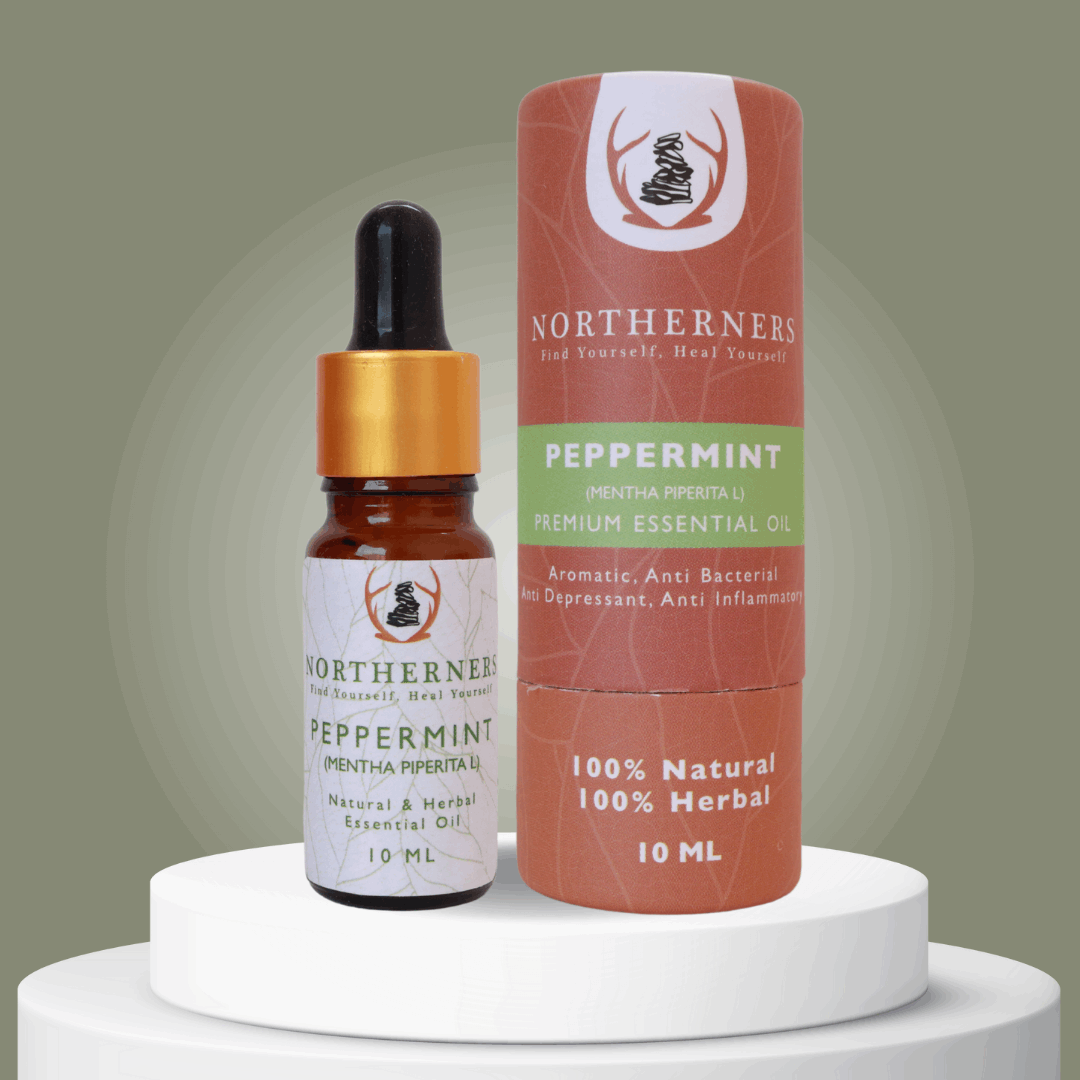Peppermint Essential Oil
Peppermint Essential Oil
Revitalize your senses with Northerners Peppermint Essential Oil's invigorating minty aroma, promoting mental clarity and rejuvenation. Experience its uplifting effects for a refreshing boost of energy.
Couldn't load pickup availability
Learn More
Learn More
Refresh your senses with the cool and invigorating scent of Northerners Peppermint Essential Oil, a Natural Essential Oil that embodies the essence of revitalization and energy. With its minty and uplifting aroma, this oil awakens your mind and invigorates your senses, complemented by the wonders of Herbal Essential Oil. Let the refreshing fragrance of peppermint revitalize your surroundings, promoting mental clarity and focus. Known for its revitalizing effects, this Natural Essential Oil, in harmony with Herbal Essential Oil, can enhance your energy and promote a sense of rejuvenation. Infuse a few drops into your diffuser or blend it with a carrier oil for a stimulating and aromatic massage experience. Embrace the natural freshness of Peppermint Essential Oil, a fusion of Natural Essential Oil and Herbal Essential Oil, and experience a revitalizing and uplifting sensation that springs from the heart of nature's botanical wonders. Immerse yourself in the invigorating embrace of Northerners Natural Essential Oil and Herbal Essential Oil, and let the refreshing essence of peppermint awaken your senses and revitalize your spirit. Allow the cool and minty energy of these botanical wonders to inspire clarity, focus, and a renewed zest for life.
Share
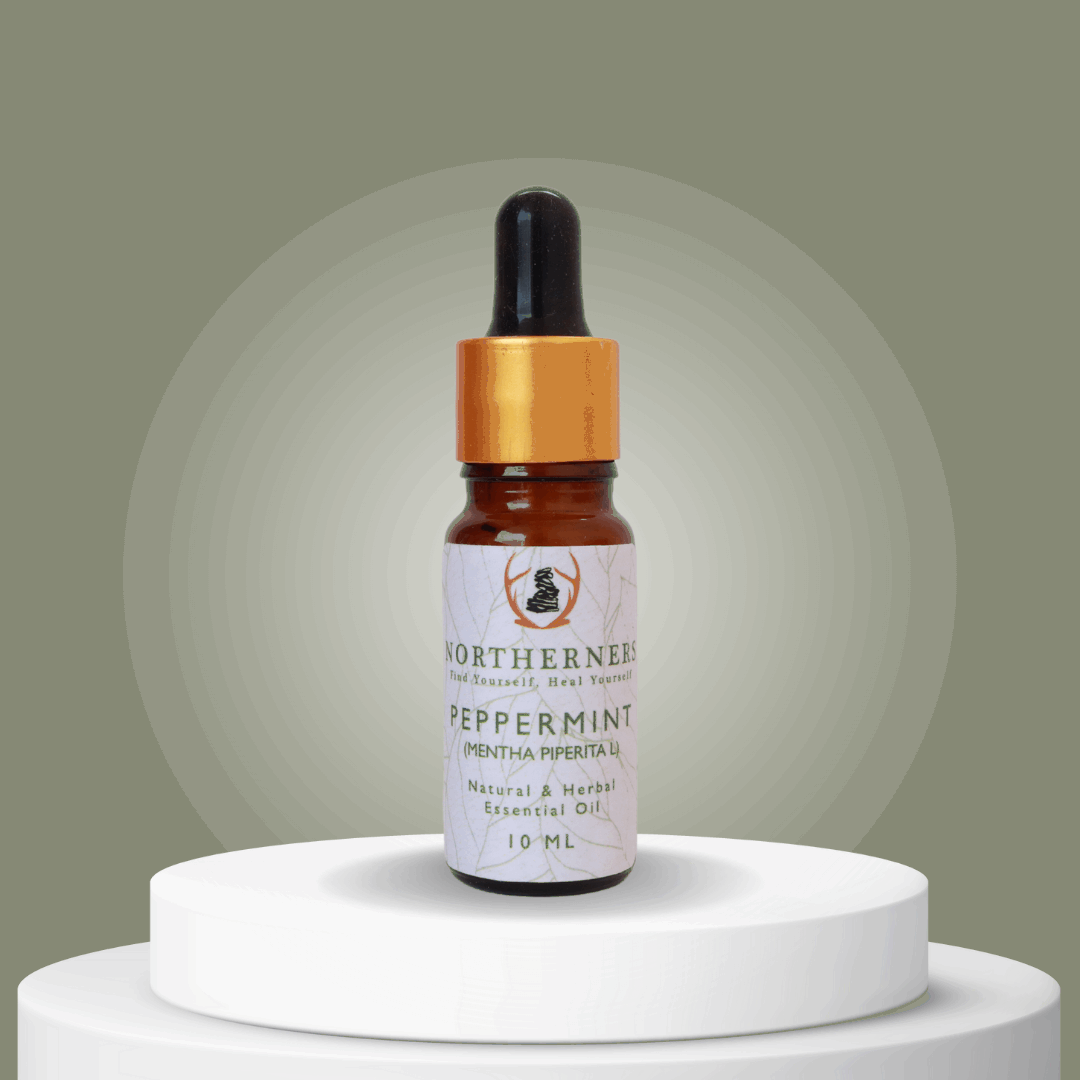
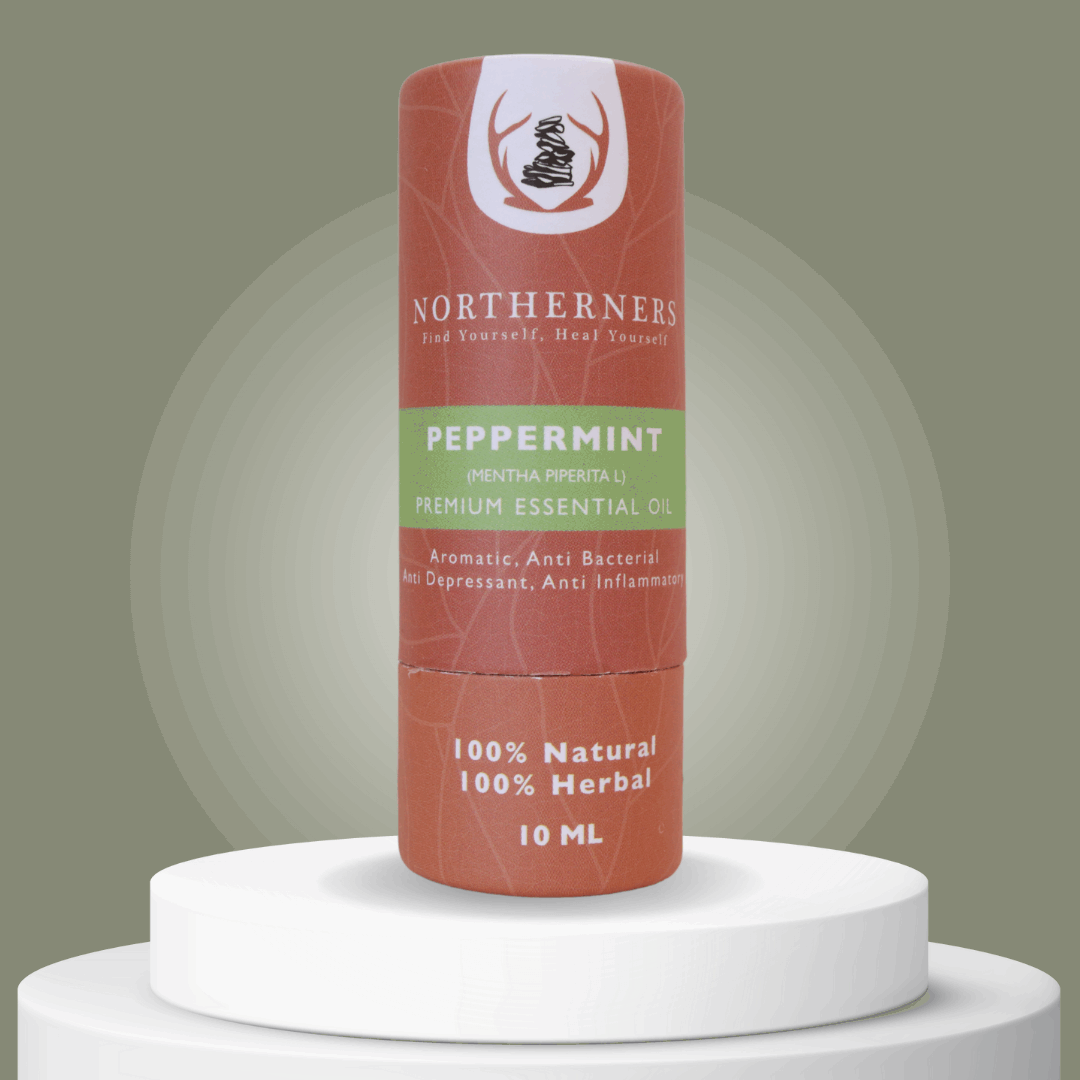
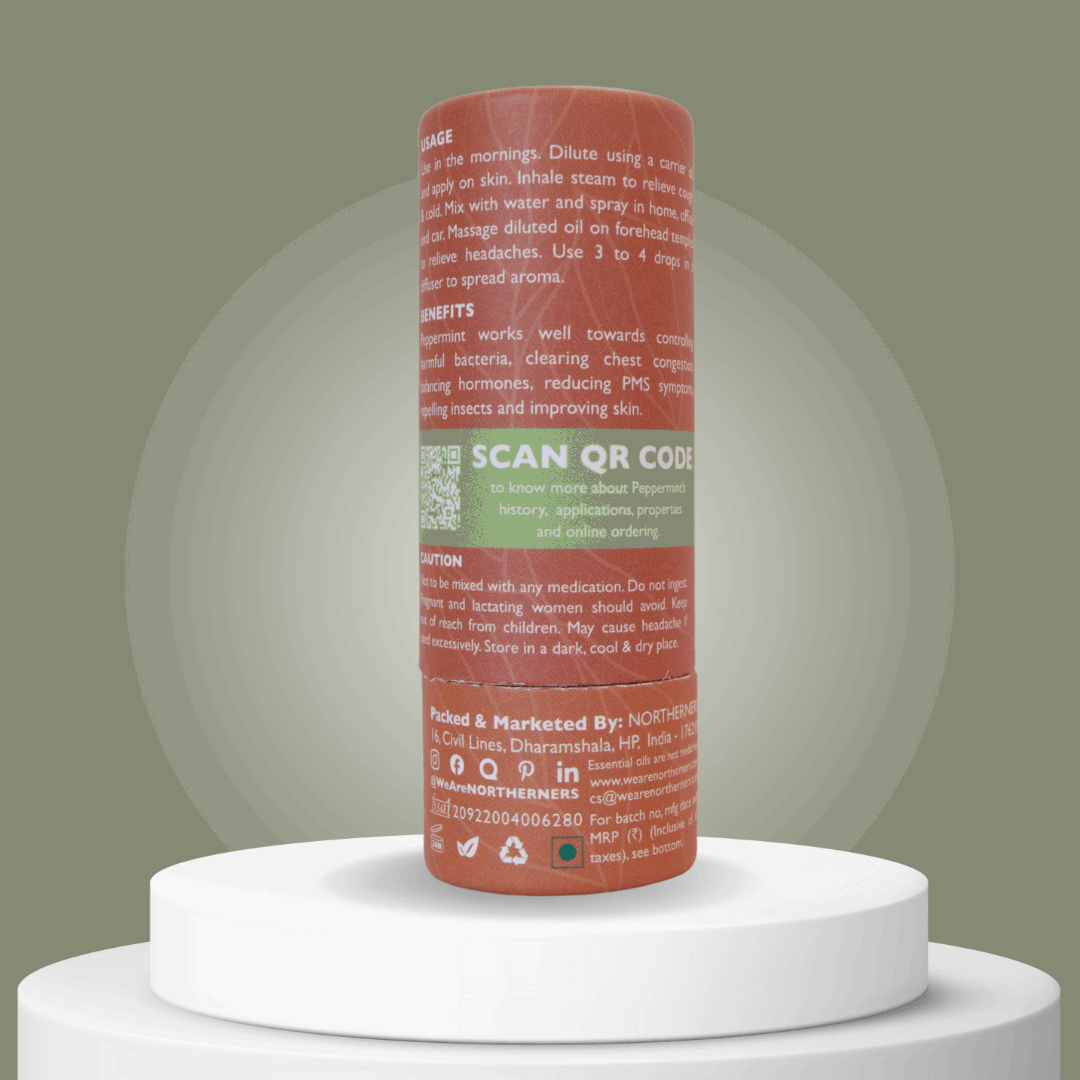
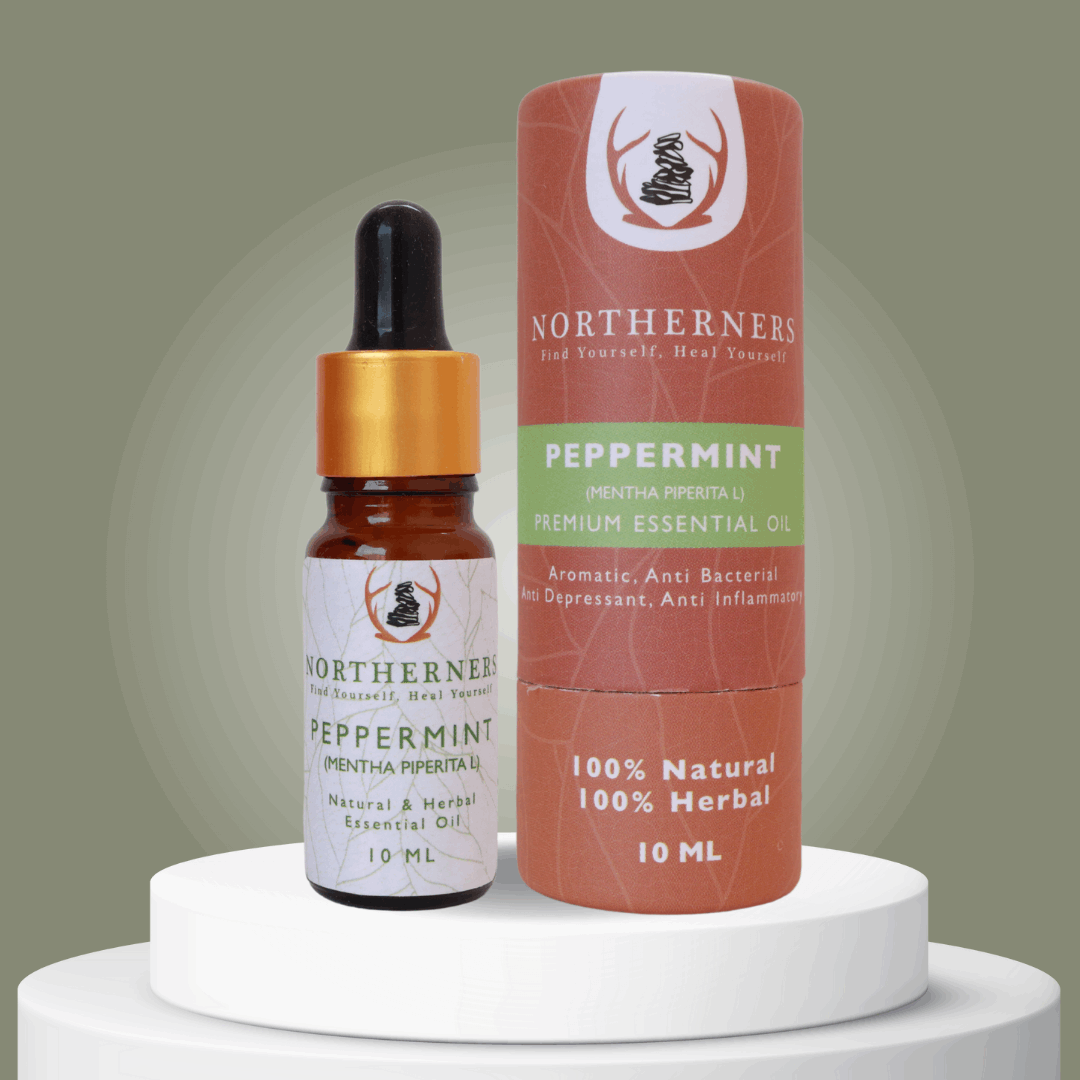
Know More About Peppermint Essential Oil
Usage
Peppermint essential oil is a versatile oil that can be used in a variety of ways. Here are some common ways to use peppermint essential oil:
- Aromatherapy: Add a few drops of peppermint essential oil to a diffuser or inhale directly from the bottle to enjoy its refreshing, minty scent. This can help promote alertness, focus, and mental clarity.
- Topical application: Dilute a few drops of peppermint essential oil with a carrier oil such as coconut oil or jojoba oil and apply to the skin. This can help alleviate headaches, muscle pain, and digestive issues.
- Inhalation: Add a few drops of peppermint essential oil to a bowl of hot water and inhale the steam to help alleviate congestion and respiratory issues.
- Mouthwash: Add a drop or two of peppermint essential oil to a glass of water and use as a refreshing mouthwash.
- Massage: Mix a few drops of peppermint essential oil with a carrier oil and use for a soothing and invigorating massage.
- Cooking: Add a drop or two of peppermint essential oil to recipes for a minty flavor. Be sure to use a high-quality, food-grade essential oil and start with a small amount as it can be very potent.
It's important to note that peppermint essential oil is very potent and should be used with caution. Always dilute it with a carrier oil before applying to the skin, and avoid using it near the eyes, mouth, or sensitive areas. Peppermint essential oil is not recommended for use with young children or during pregnancy. It's also important to use a high-quality, pure peppermint essential oil to ensure safety and efficacy.
Potential Health Benefits
Peppermint essential oil has a range of potential health benefits, including:
- Relieving headaches: Peppermint oil has a cooling effect that can help soothe headaches and migraines. Applying diluted peppermint oil to the temples and forehead may help alleviate pain and discomfort.
- Improving digestion: Peppermint oil can help stimulate the digestive system, relieve bloating and gas, and alleviate symptoms of irritable bowel syndrome (IBS).
- Relieving respiratory issues: Inhaling peppermint oil can help clear nasal passages, relieve congestion, and reduce symptoms of asthma and bronchitis.
- Enhancing mental clarity: Peppermint oil has a refreshing and invigorating scent that can help improve focus, alertness, and cognitive performance.
- Soothing sore muscles: Applying diluted peppermint oil topically can help reduce muscle pain, soreness, and inflammation.
- Fighting infections: Peppermint oil has antiviral, antibacterial, and antifungal properties that may help protect against infections and boost the immune system.
It's important to note that while peppermint oil has many potential health benefits, it can also cause side effects in some people, such as skin irritation, digestive upset, or allergic reactions. It's important to use peppermint oil properly and with caution, and always consult with a healthcare provider before using it to treat a health condition.
Natural Properties
Peppermint essential oil has several natural properties, including:
- Cooling: Peppermint oil has a cooling sensation when applied to the skin or inhaled, which can help soothe skin irritations, alleviate headaches, and relieve muscle pain.
- Anti-inflammatory: Peppermint oil has anti-inflammatory properties that can help reduce swelling, inflammation, and redness.
- Analgesic: Peppermint oil has natural pain-relieving properties that can help alleviate muscle and joint pain, headaches, and menstrual cramps.
- Antimicrobial: Peppermint oil has antimicrobial properties that can help protect against bacteria, viruses, and fungi.
- Decongestant: Peppermint oil has natural decongestant properties that can help clear the respiratory tract and alleviate symptoms of colds, coughs, and allergies.
- Stimulant: Peppermint oil has a stimulating effect on the mind and body, which can help improve focus, alertness, and energy levels.
- Digestive: Peppermint oil has natural digestive properties that can help soothe digestive issues such as bloating, gas, and indigestion.
It's important to note that these natural properties of peppermint oil can vary depending on the quality and purity of the oil. Always use a high-quality, pure peppermint oil to ensure safety and efficacy.
Precaution
Peppermint essential oil is generally considered safe for topical and aromatherapy use, but it's important to take certain precautions to avoid potential side effects. Here are some precautions to keep in mind:
- Dilute properly: Peppermint oil is very potent and can cause skin irritation or allergic reactions if applied undiluted. Always dilute peppermint oil with a carrier oil before applying it to the skin.
- Avoid contact with eyes and mucous membranes: Peppermint oil can cause eye irritation and discomfort if it comes into contact with the eyes. Avoid applying it near the eyes or other sensitive areas such as the nose, mouth, and genitals.
- Do a patch test: Before using peppermint oil on a larger area of the skin, do a patch test on a small area of the skin to check for any allergic reactions or irritation.
- Avoid during pregnancy and breastfeeding: While peppermint oil is generally safe for most people, it should be avoided during pregnancy and breastfeeding as it may affect hormone levels and cause complications.
- Avoid in children: Peppermint oil should not be used on children under the age of 6 as it can cause respiratory distress or other adverse effects.
- Consult with a healthcare provider: If you have a medical condition or are taking medication, consult with a healthcare provider before using peppermint oil to ensure that it is safe for you to use.
- Store properly: Peppermint oil should be stored in a cool, dark place away from direct sunlight to prevent oxidation and deterioration of the oil.

